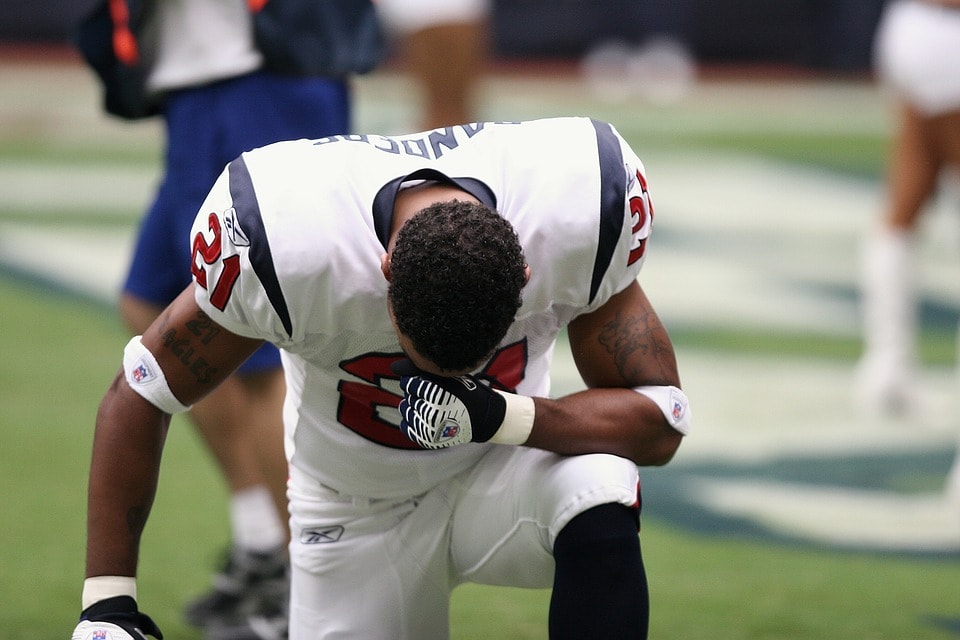
This Expert Analysis was originally published in Law360 on September 29, 2017. See original.
DID TRUMP ASK THE NFL TO BREAK THE LAW?
By David E. Gottlieb President Donald Trump has publicly advocated for NFL owners to fire players who refuse to stand for the national anthem at football games. This raises the question: Would it be unlawful to fire an employee for refusing to do so, if the basis were to protest perceived societal racial injustice?
Title VII of the Civil Rights Act of 1964, in addition to prohibiting employment discrimination on the basis of race, religion, gender and national origin, also makes it unlawful for an employer to retaliate against any employee who opposes discriminatory conduct prohibited by the law. An employee’s expressed opposition to a discriminatory practice — in response to which an employer is prohibited from retaliating — is referred to under the law as “protected activity.” Protected activity can take an array of forms, including formal written complaints, verbal complaints, refusals to engage in discriminatory conduct and even nonverbal protests. An employee’s complaint of discrimination constitutes protected activity even if the conduct in question cannot be proven to be discrimination — so long as the complaint is grounded in “good faith.” The intent of the law was that employees should be encouraged to voice discrimination complaints, not to be fired — or be fearful of being fired — for doing so. According to the U.S. Equal Employment Opportunity Commission, 42,018 retaliation claims were filed in 2016 — more than any other type of employment discrimination claim. The next highest category was race discrimination with 32,309 claims.
The predicate issue then, is whether NFL players who choose not to stand during the national anthem are engaged in protected activity. More than a year ago, football player Colin Kaepernick explained in an interview that — speaking only for himself — “I am not going to stand up to show pride in a flag for a country that oppresses black people and people of color.” Now others are refusing to stand during the national anthem for seemingly similar reasons, or to show support for his right to express those views. It cannot be legitimately disputed that Kaepernick and his peers are expressing a protest against societal racial injustice or support for others who make such protests. However, the question still remains whether that is protected activity.
One could argue that an NFL player who refuses to stand during the national anthem is not engaged in a protected activity because the player would not be complaining about any discriminatory employment practice. Section 704 of Title VII, the law’s anti-retaliation provision, specifically states that an employee is protected only if he or she opposes an “unlawful employment practice.” However, courts have broadly construed the anti-retaliation provision of Title VII and other anti-discrimination laws in order to ensure that the comprehensive remedial intent of the law is accomplished. For instance, in describing protected activity, the Second Circuit, as far back as 1990 in Sumner v. U.S. Postal Service, 899 F.2d 203 (2d Cir. 1990), held that Title VII protects employees who protest against discrimination “by industry or society in general.” However, no court has further expounded on the contours of these types of complaints, let alone whether an athlete refusing to stand for the national anthem on grounds of societal racial injustice would qualify, leaving substantial room for argument on both sides.
One could also argue that the act of refusing to stand for the national anthem is an opposition to a good faith perception of an unlawful employment practice. If, for example, one believes — like Kaepernick — that the national anthem stands for oppression of black people and people of color, then such person may believe that an employer playing the national anthem at work — or permitting it to be played — constitutes support for racial injustice. One need not agree that that would constitute support for racial injustices — and it may be a hurdle to ultimately convince a jury of that belief — but so long as the employee holds that position in good faith, it could very likely be considered an opposition to a perceived discriminatory employment practice. If that is the case, it would be considered protected activity and it would be unlawful to retaliate against such an employee for protesting, whether by refusing to stand or otherwise.
The law is far from certain — and it is not at all surprising that these legal nuances are lost in the political rhetoric and storm of presidential tweets. Certainly, if an NFL team owner were to terminate a player for refusing to stand during the national anthem, the owner would doubtlessly be able to articulate nondiscriminatory and nonretaliatory reasons for the decision — such as it being disrespectful to the country or the team, which is of course not protected under Title VII. However, so long as such supposed “disrespect” is intertwined with a complaint concerning race discrimination, any retaliatory act would be fraught with the risk of protracted litigation.
Reprinted with permission from the September 29, 2017 edition of the Law360 © 2017 Portfolio Media, Inc. All rights reserved.
Further duplication without permission is prohibited. Law360 Rights and Reprints – 646-783-7100 – reprints@law360.com
| David E. Gottlieb Partner |
| WIGDOR LLP 85 Fifth Avenue, New York, NY 10003 T: (212) 257-6800 | F: (212) 257-6845 |
| dgottlieb@wigdorlaw.com wigdorlaw.com |